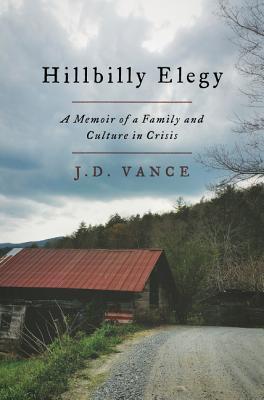
“The Best Way up for the Hillbilly Was out”
Title of the book: Hillbilly Elegy
Author: J.D Vance
Date of Publication: June, 2016.
When you put away Hillbilly Elegy after the first read, it might appear like a brave, thoughtful and sentimental memoir about growing up in a dysfunctional Scottish-Irish immigrant family. Vance was born in Kentucky, he spent most of his formative years living in a small town called Middletown, Ohio with an “unhinged mother”, a parade of problematic father figures and his gun-brandishing Mamaw (grandmother), who loves death threats almost as much as she loves looking after neglected children.

Subsequently, if you revisit the book with the knowledge that the Hillbilly subculture was an essential demographic in Trump’s victory, it appears like a nuanced and heartbreaking representation of the numerous disgruntled lives of the white American working class, living in the Midwest.
The author’s life is a literal personification of the ‘American Dream,’ come true, some would say; from living in a town where poverty is the family tradition, to graduating from Yale Law School.
The broad arc of the survivor narrative traces Vance’s initial years of growing up in the Midwest, surrounded by the shutting down (and imminent collapse) of scores of manufacturing industries. To Vance’s family, this means a loss of economic security and the stability of domestic life that comes with it.
The tone of the narrative is sincere and personal, and the additional research is meant to be interpreted within the context; it isn’t exhaustive, but insightful enough to bridge the ever-widening gulf between various economic classes, in a “meritocratic society.”
He makes the worrying yet plausible claim that poverty in America, doesn’t just plague those who live in ghetto cities. He writes, ““The statistics tell you that kids like me face a grim future — that if they’re lucky, they’ll manage to avoid welfare; and if they’re unlucky, they’ll die of a heroin overdose.”
Fortunately for him (and for us), he manages to escape this fate by imbibing hillbilly values that Mamaw drilled into his head; loyalty towards family and self-reliance. After graduating from high school, Vance enlists in the Marines, serves in Iraq, finishes his undergraduate course at Ohio University and goes on to graduate from one of the top Ivy League schools in America, where he meets his future wife.
His transition from seeking shelter to providing it, is underlined by the pressing question of why a stagnant air of pessimism hangs around those families he left behind in Middletown. The young Silicon Valley investment manager talks about a psychological phenomenon called ‘learned helplessness,’ which manifests in the indifference towards work and dependence on welfare, among the residents of Middletown. “People talk about hard work all the time in places like Middletown [Ohio],” Vance writes. “You can walk through a town where 30 percent of the young men work fewer than 20 hours a week and find not a single person aware of his own laziness.”
It’s essential to keep in mind that Vance’s observations about the white working class in the Rust Belt isn’t an indictment or disloyalty in the form of class betrayal. It is a sympathetic effort to nudge the hillbilly subculture out of the path of self-sabotage through its own agency and enterprise.